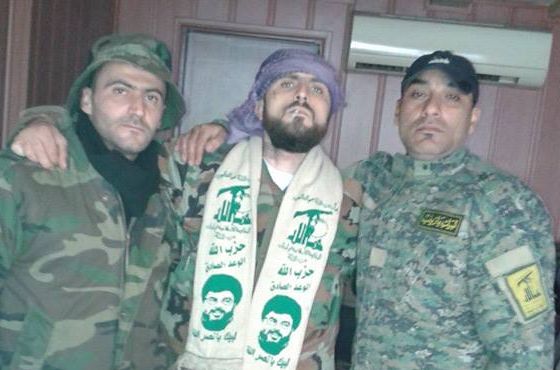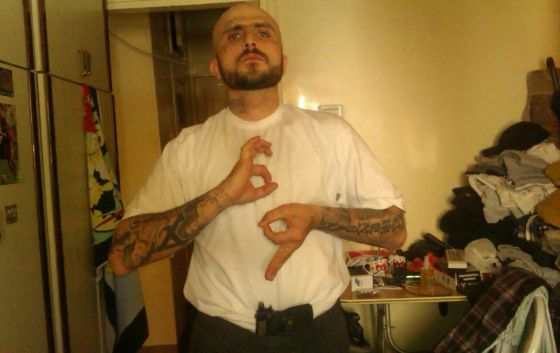
The Washington Post reports: Two Los Angeles gang members appear to have joined the flow of foreigners flocking to fight in Syria – in this instance, on the side of President Bashar al-Assad. In a video posted online, the two men boast that they are on the front lines and fire their guns in the direction of what they call “the enemigos.”
One of the men identifies himself as Creeper from the Sur-13 or Surenos, a loose affiliation of southern California gangs linked to the Mexican mafia. He rolls up his sleeves to show his gang tattoos and greets fellow gang members Capone-E and Crazy Loco.
The other says he is called Wino, and belongs to a gang called Westside Armenian Power. Members of the Armenian Christian minority in Syria are known to be staunch supporters of Assad.
The video was posted on YouTube yesterday by MEMRI after being posted on Facebook on December 6. MEMRI is a pro-Israeli propaganda outfit based in Washington DC. However, based on the content of the Facebook page of Westside Armenian Power member, “Wino Ayee Peeyakan,” there seems little reason to doubt that he has indeed hooked up with Hezbollah fighters and has spent time in Syria.

In March, 2011, the FBI reported:
The Southern California crime ring called Armenian Power may look like a traditional street gang — members identify themselves with tattoos and gang clothing — but the group is really an international organized crime enterprise whose illegal activities allegedly range from bank fraud and identity theft to violent extortion and kidnapping.
Operation Power Outage — a nearly three-year investigation conducted by our Eurasian Organized Crime Task Force in Los Angeles — culminated last week with the arrests of 83 Armenian Power members on a variety of federal and state charges that include racketeering, drug trafficking, smuggling cell phones into prisons, and theft from the elderly. All told, the group allegedly bilked victims out of at least $10 million.
In one scheme, Armenian Power — known as AP — caused more than $2 million in losses when members secretly installed “skimming” devices in cash register credit card swipe machines at Southern California 99 Cents Only stores to steal customer account information. Then they used the skimmed information to create counterfeit debit and credit cards to empty accounts.
“There is no crime too big or too small for this group,” said Special Agent Louis Perez, who supervises the Eurasian Organized Crime Task Force that built the case against AP.
“This is not just a group of thugs committing crimes in their neighborhood,” added Perez. “AP is sophisticated, and they have international ties. That’s what sets them apart from traditional gangs.”
Perez is quick to point out, though, that despite their white-collar crimes, “these are dangerous people. Just because they make money through fraud, these guys are not accountants. They use violence to get what they want,” he said, explaining that one AP extortion trademark is to shoot people in the legs “to send a message.”
AP membership — thought to number about 200 — consists mainly of individuals whose heritage goes back to Armenia and other Eastern Bloc countries. While the group got its start as a street gang in East Hollywood in the 1980s, AP is now less concerned with controlling neighborhood turf as it expands its criminal activities with other organized crime groups.
For example, AP is closely allied with the Mexican Mafia, a prison gang that controls much of the narcotics distribution and other criminal activity within California’s correctional facilities. AP’s leadership also maintains ties to Armenia and Russia and deals directly with top organized crime figures in those countries — even to the point of using respected organized crime mediators — known as “thieves-in-law” — to settle disputes.

